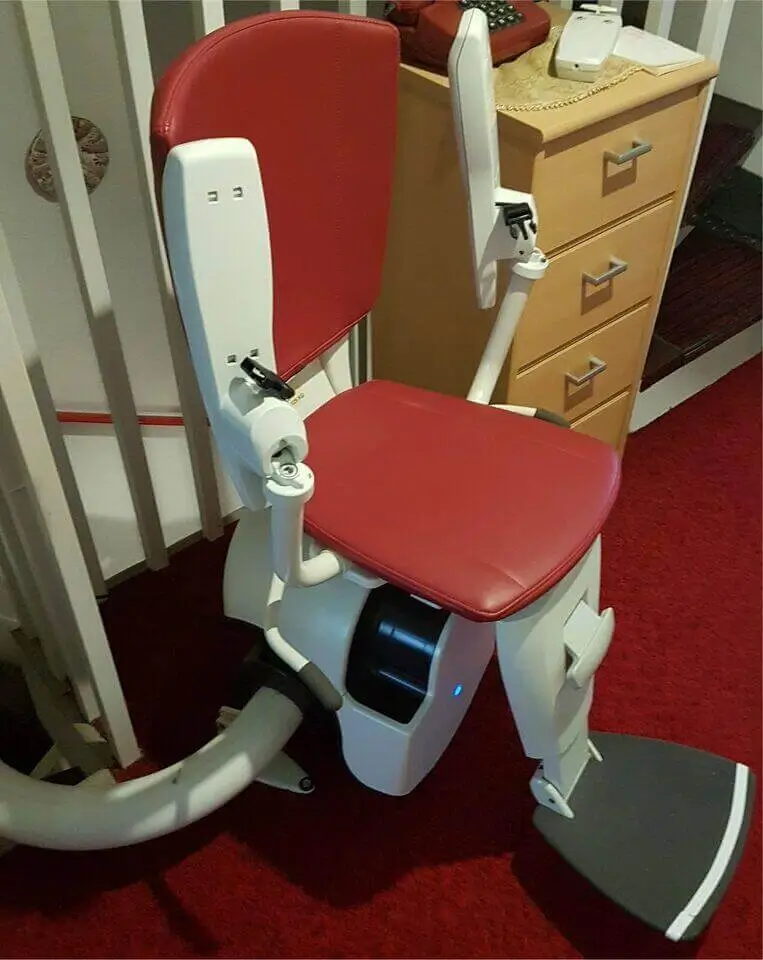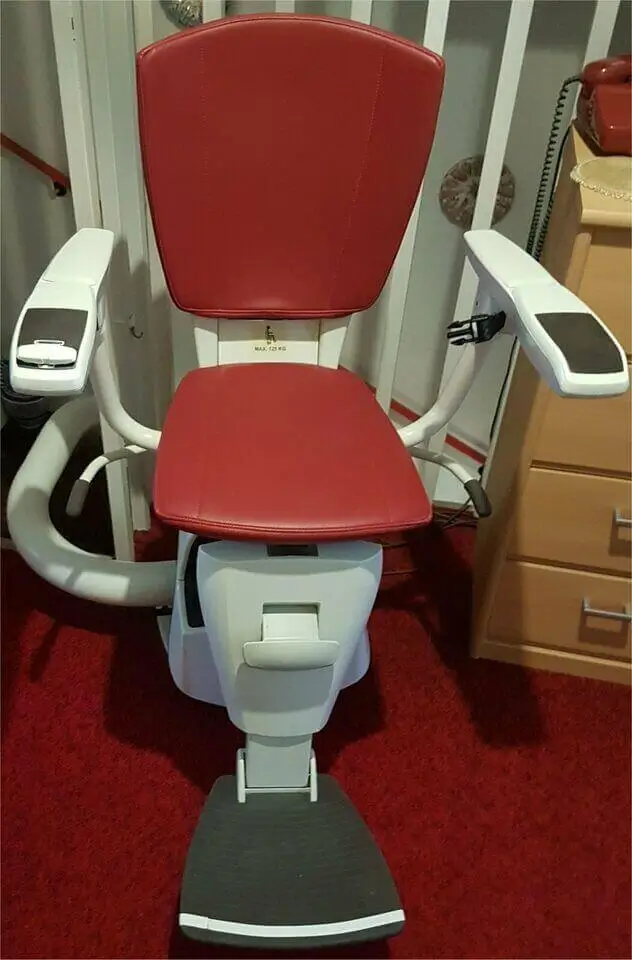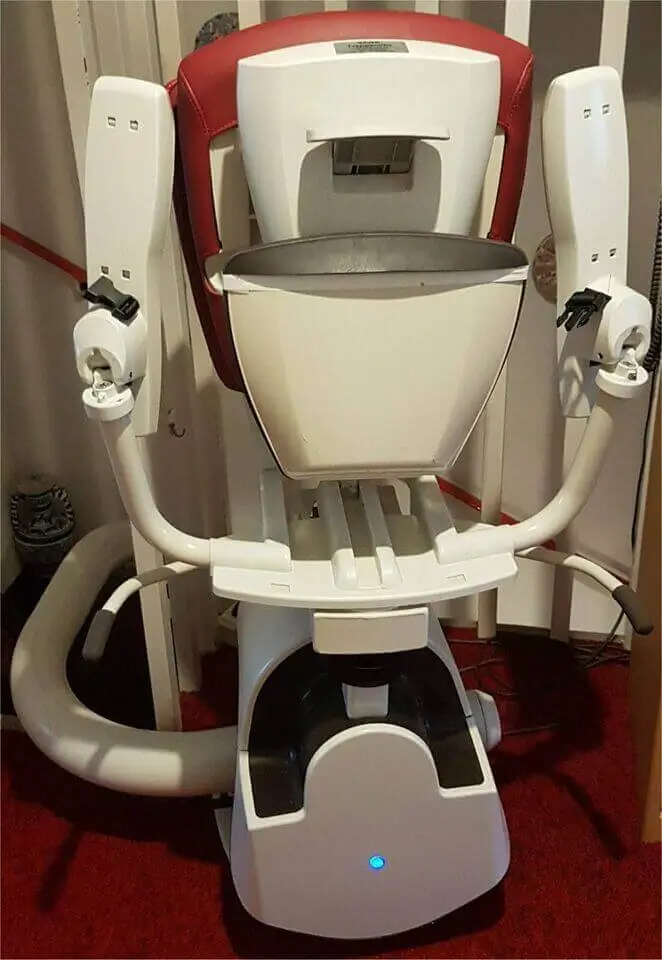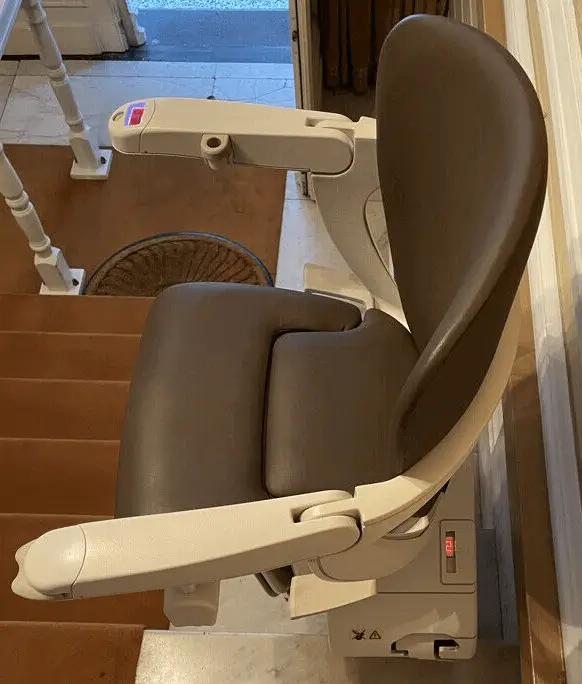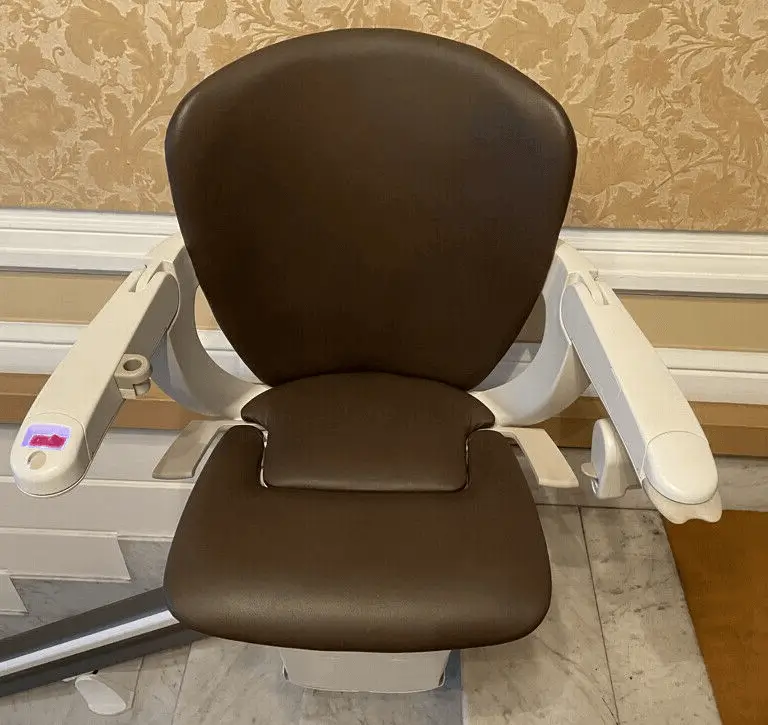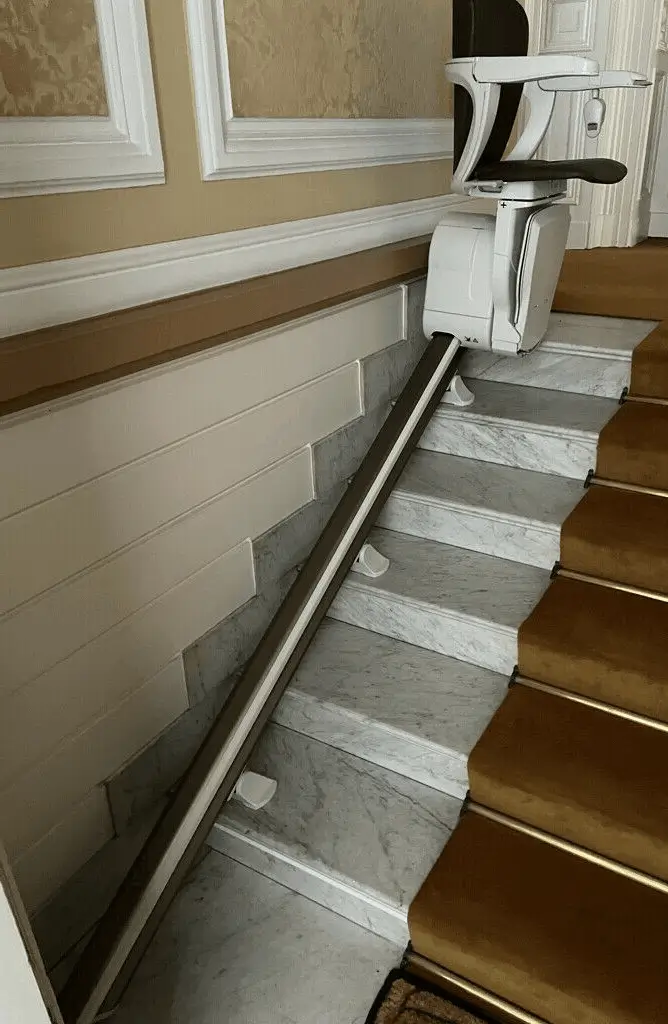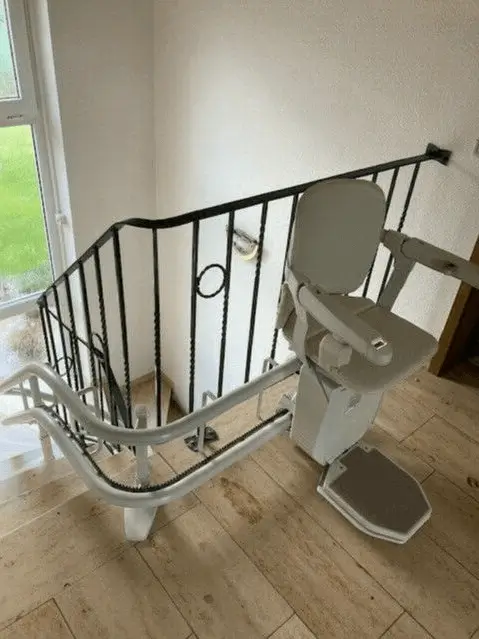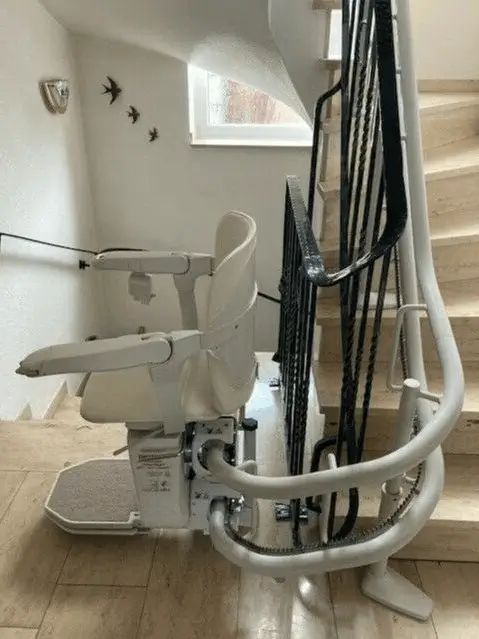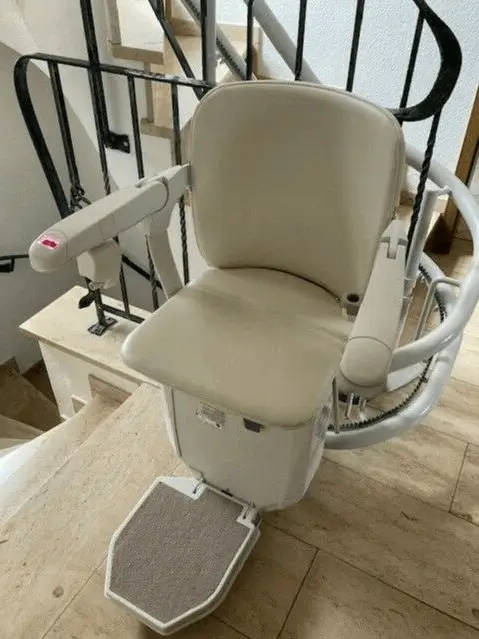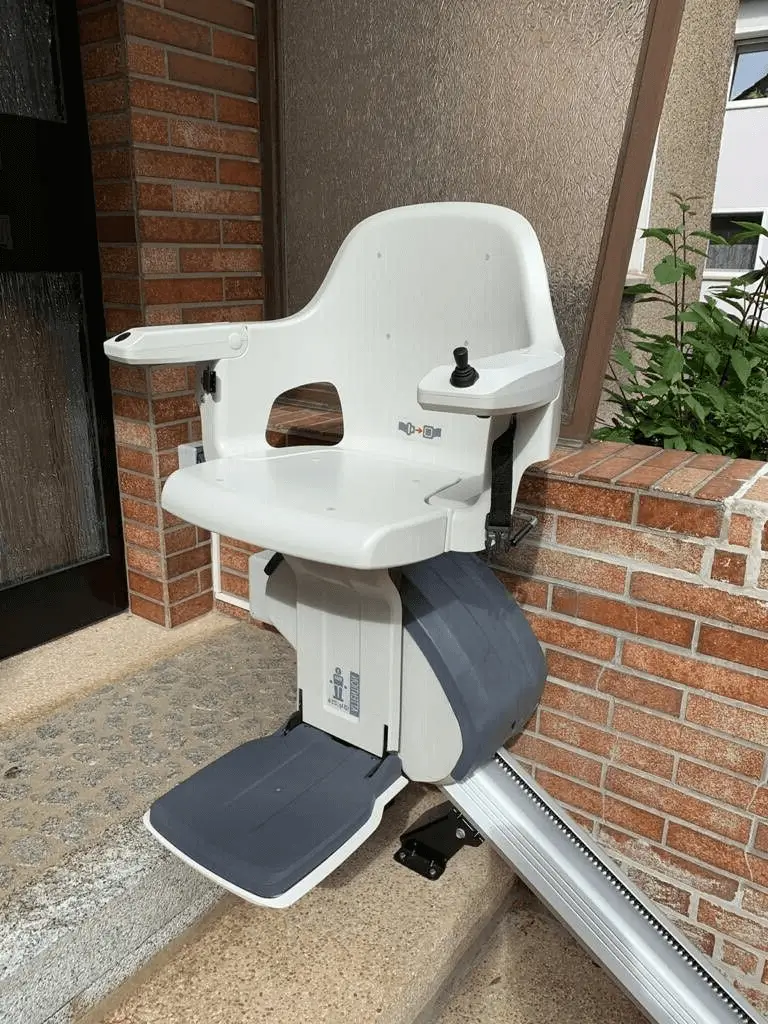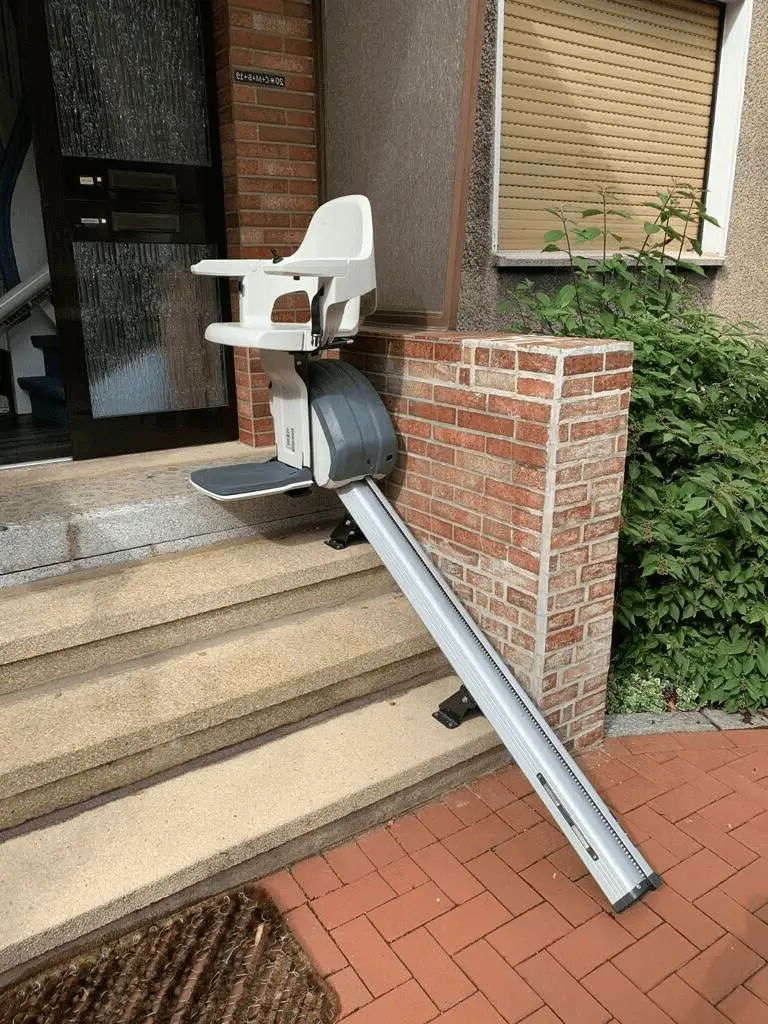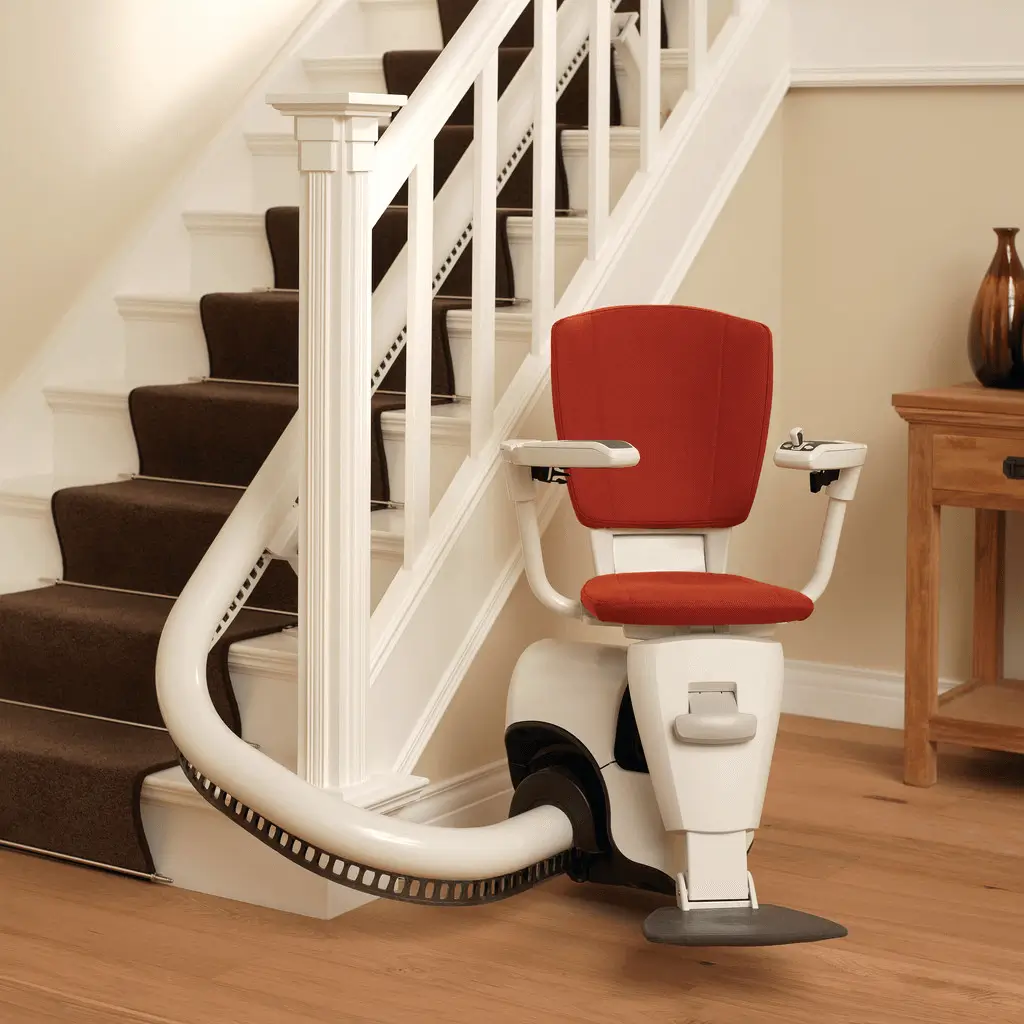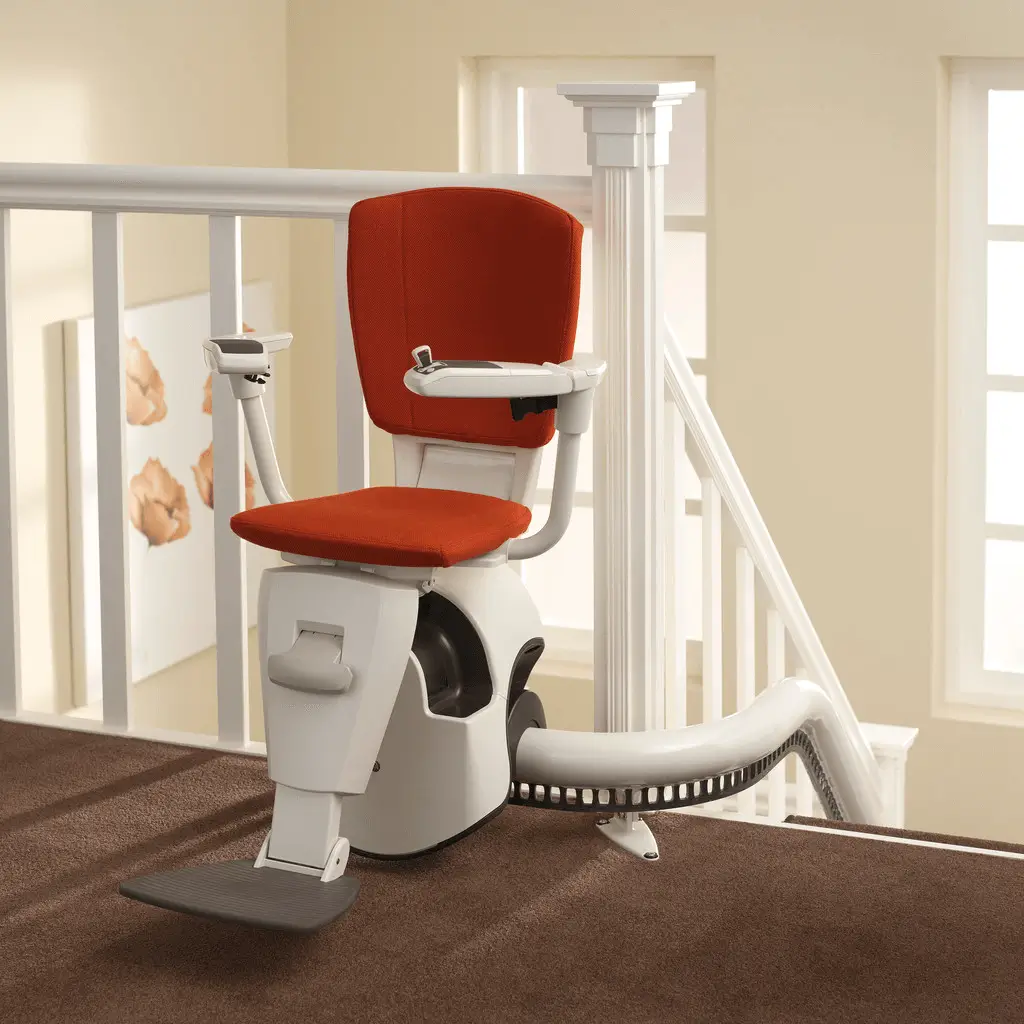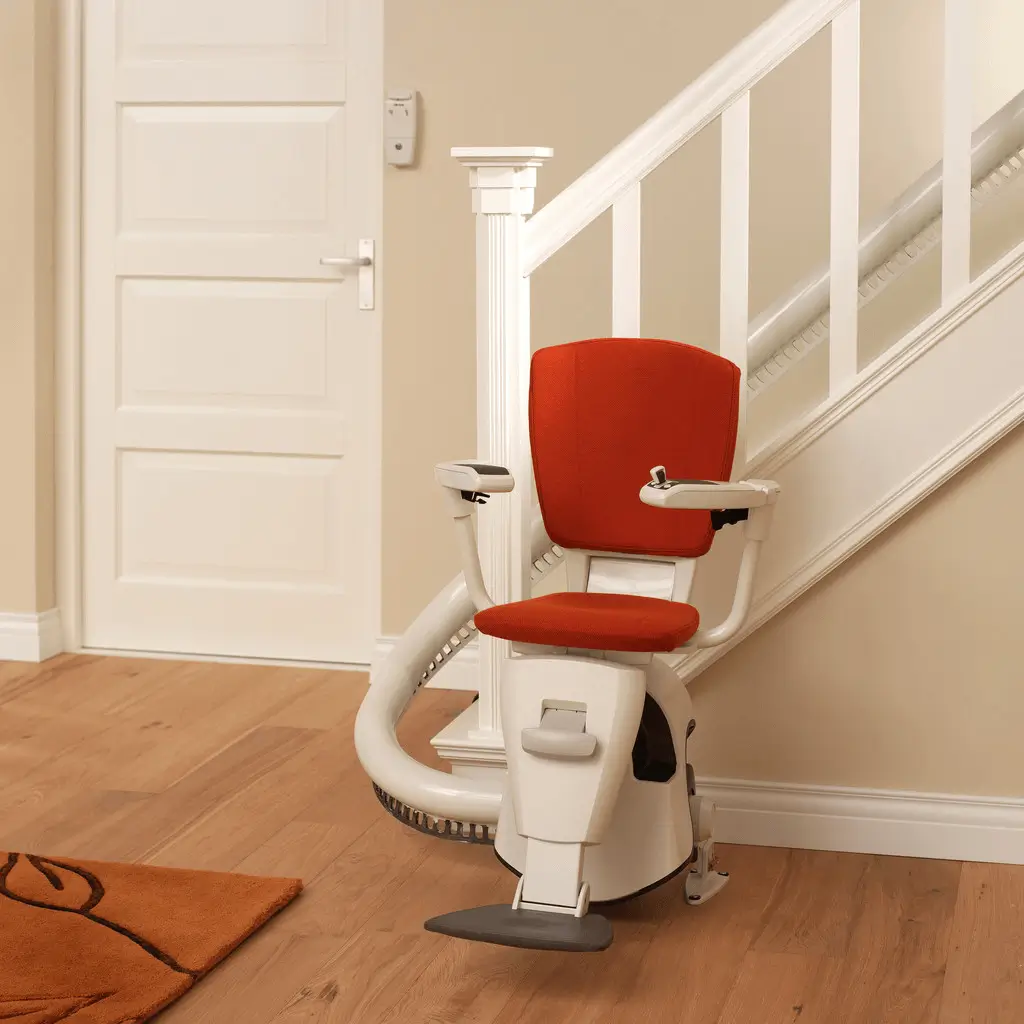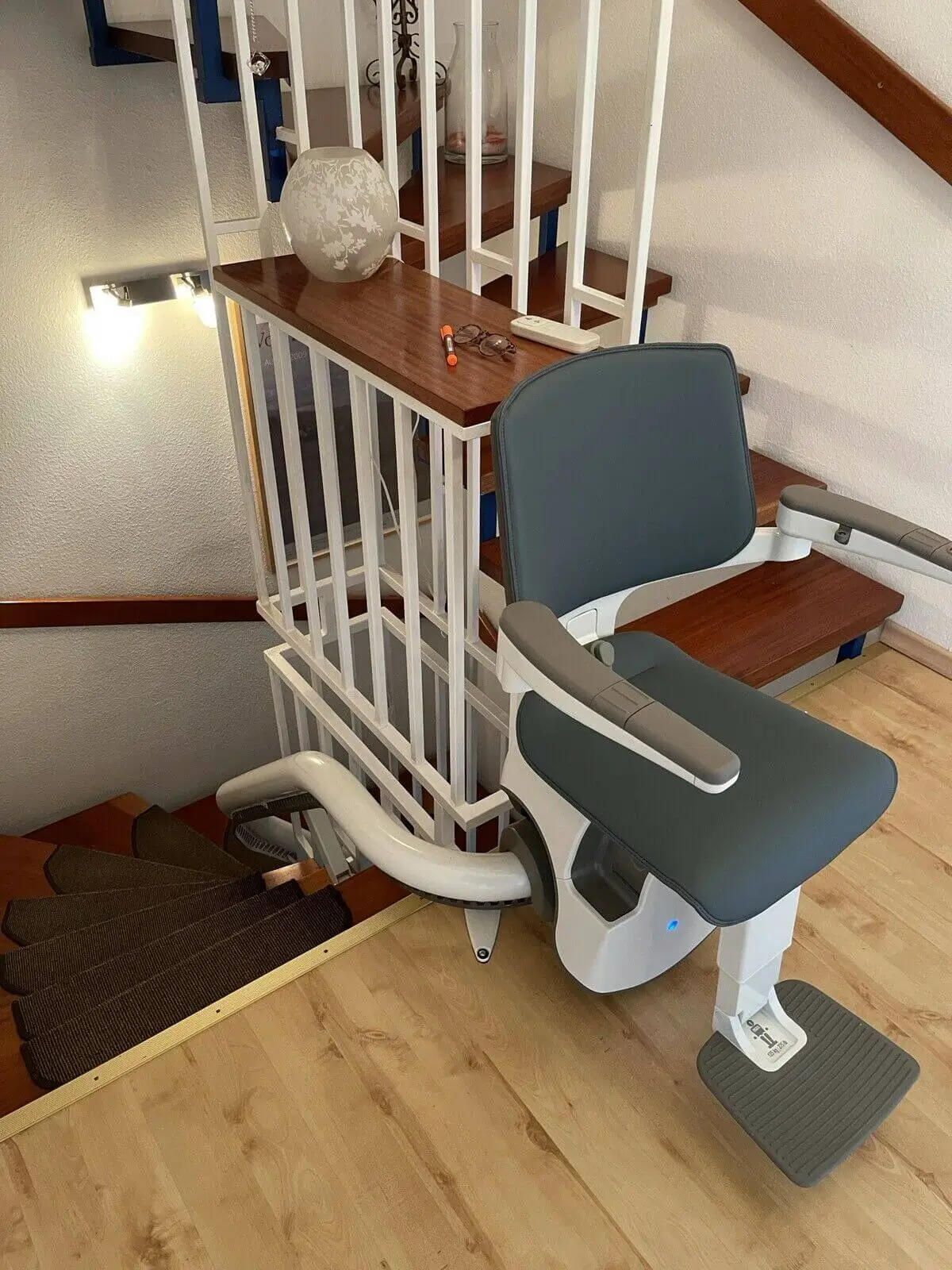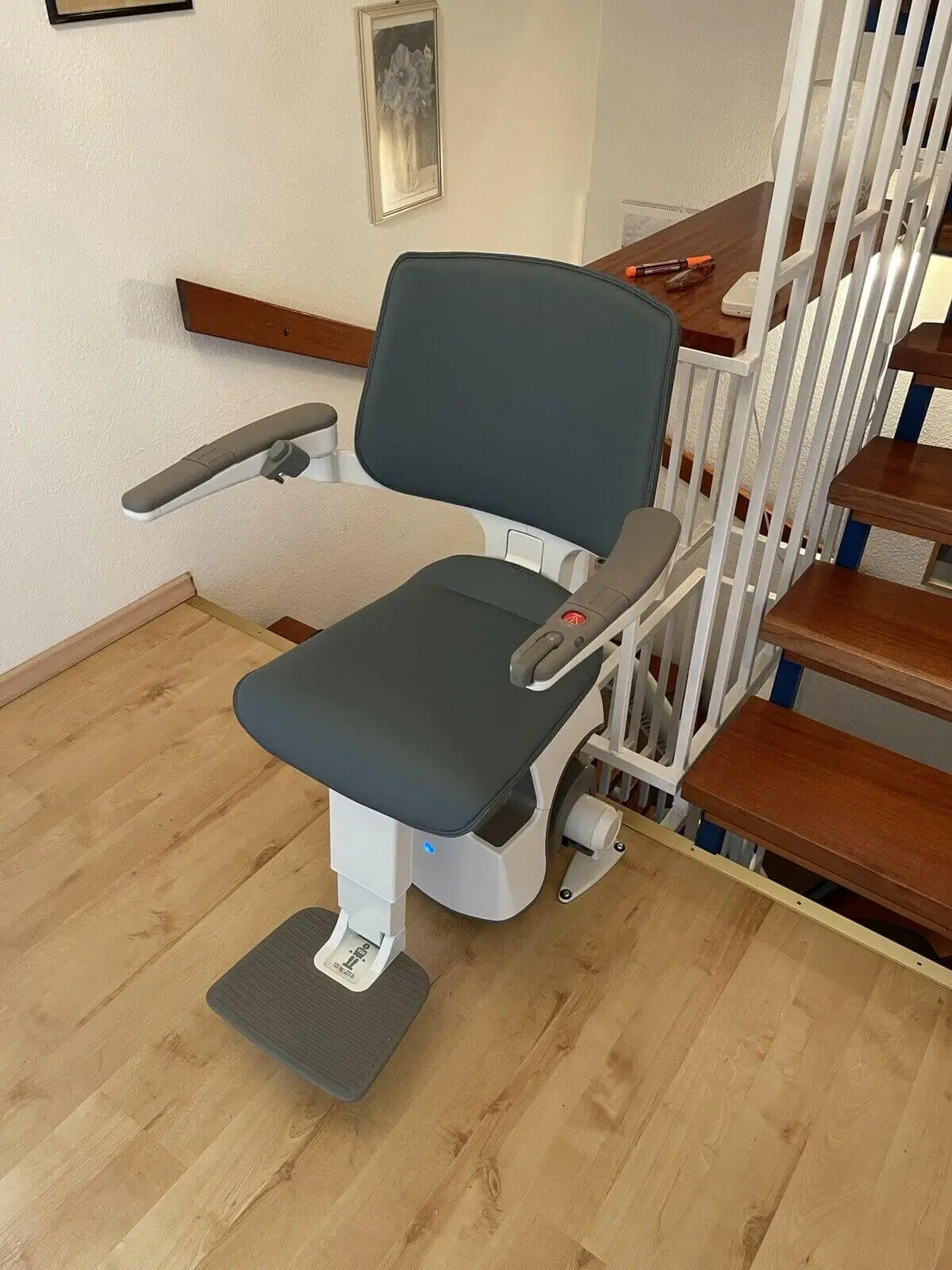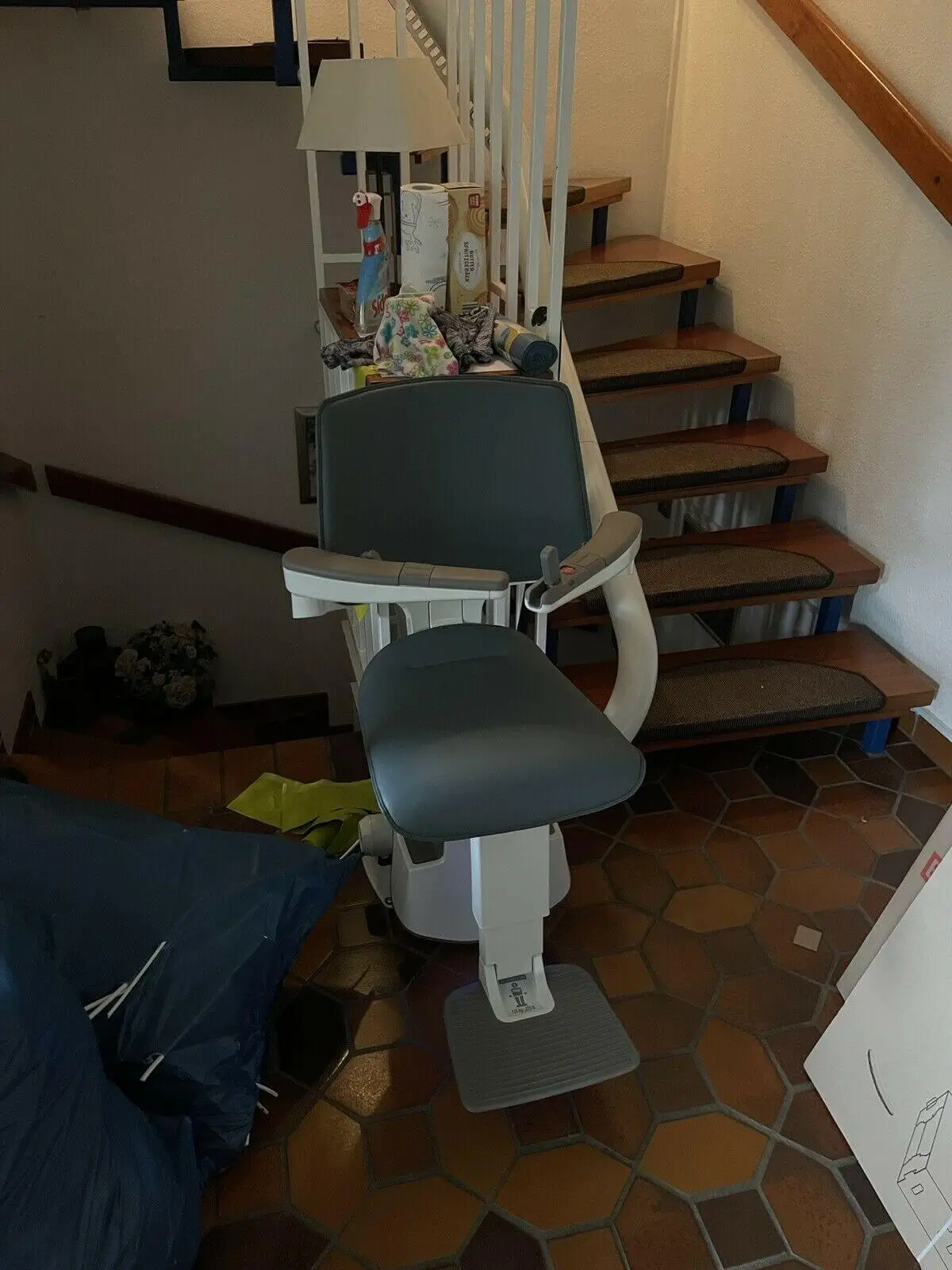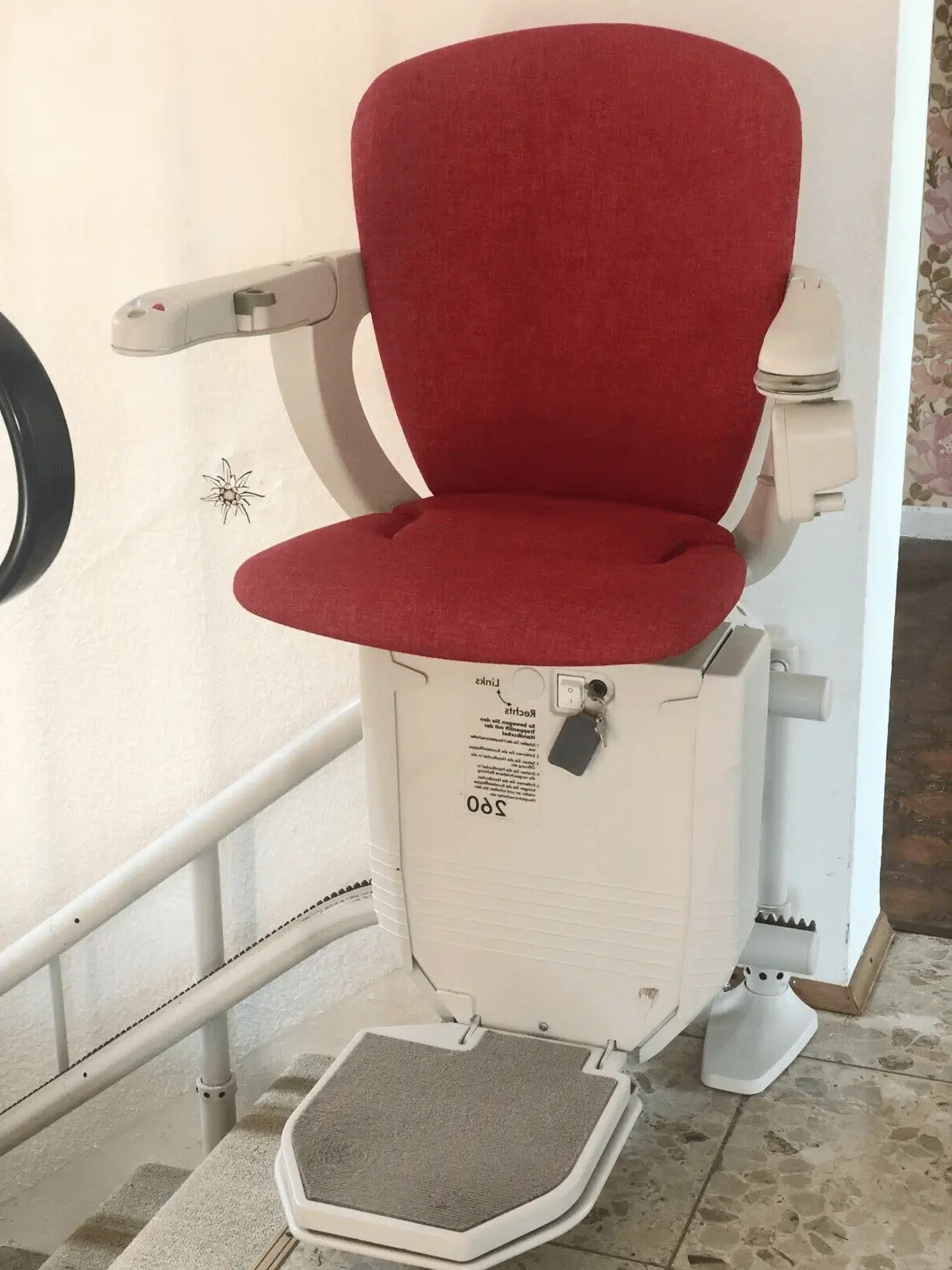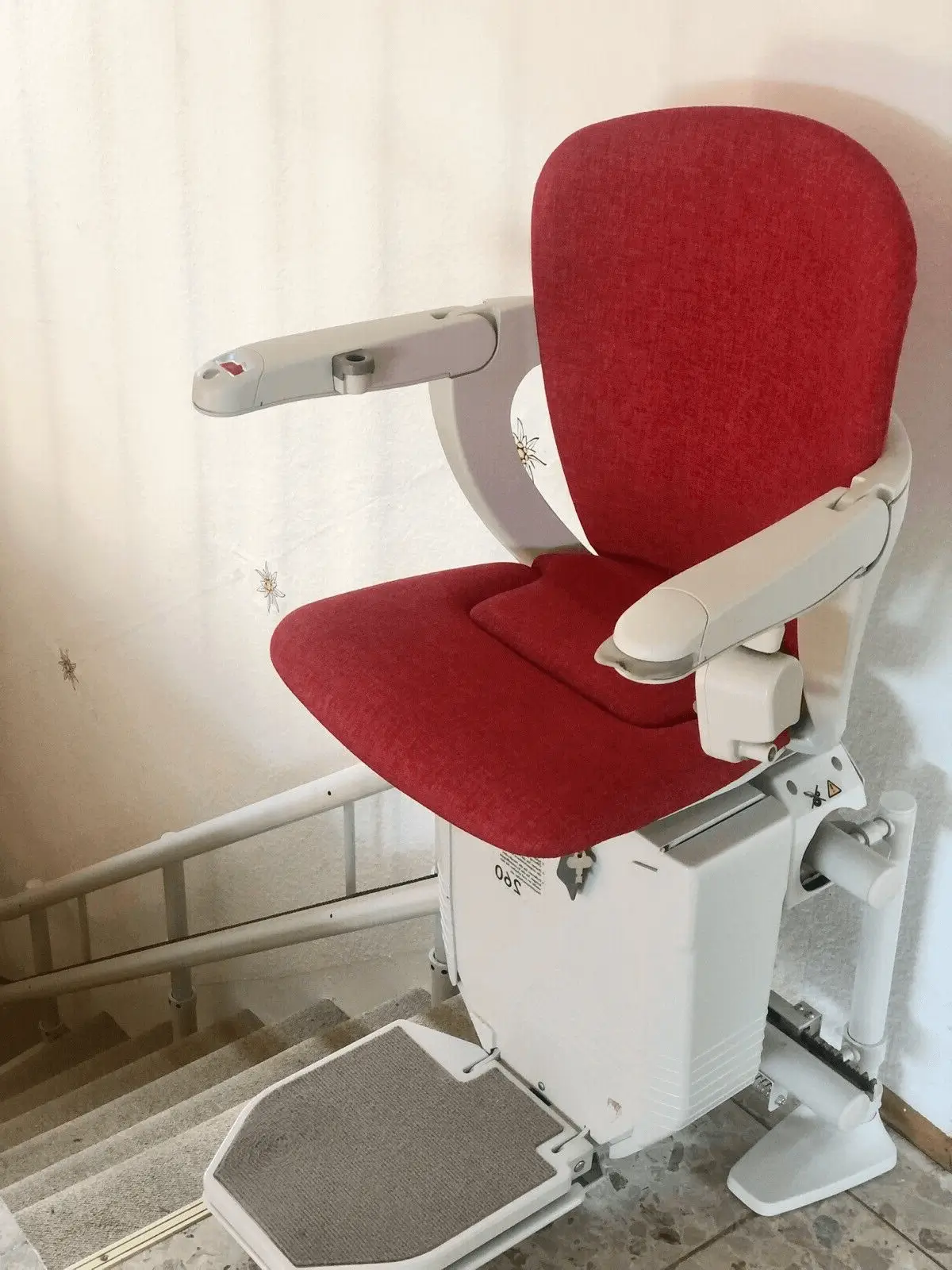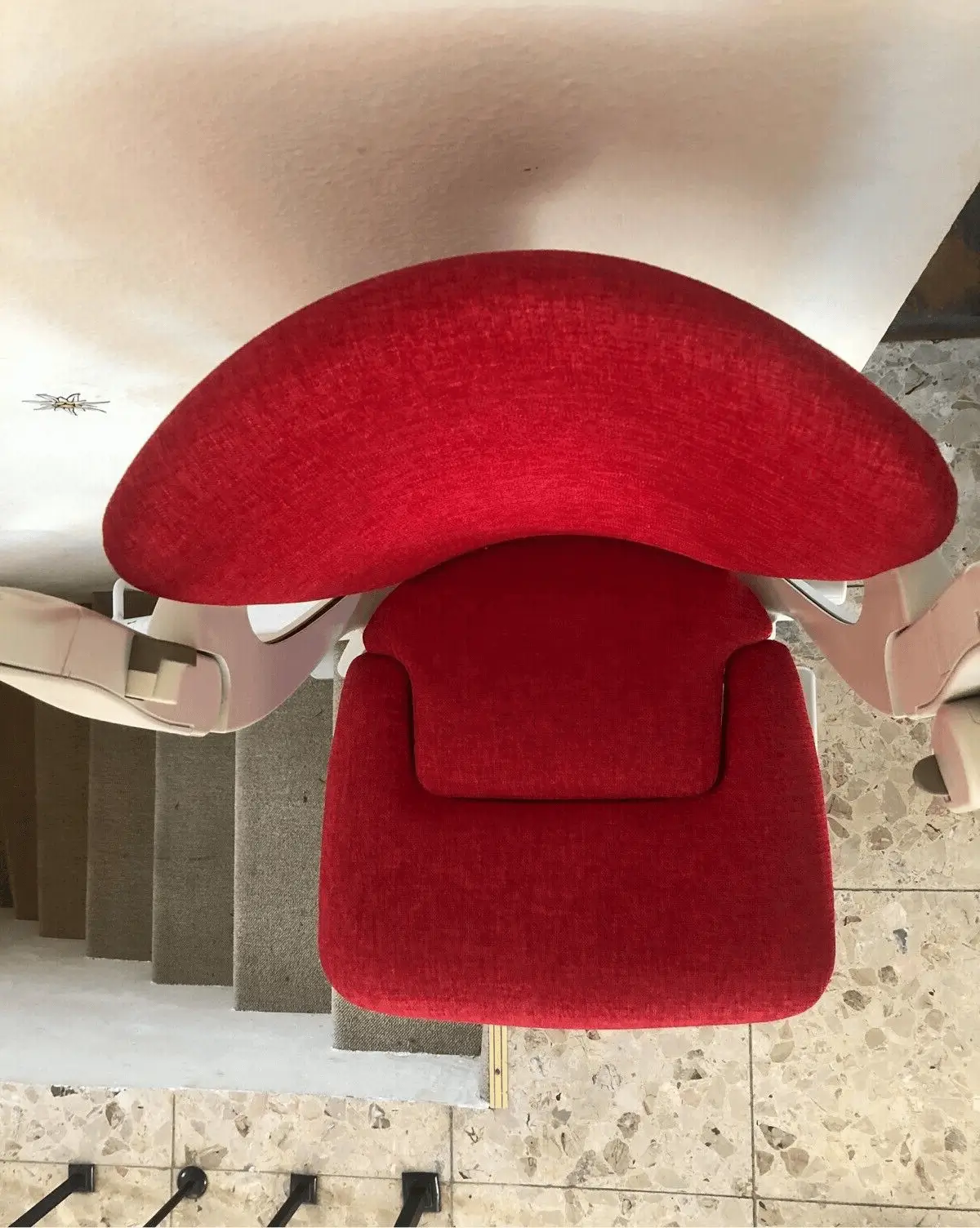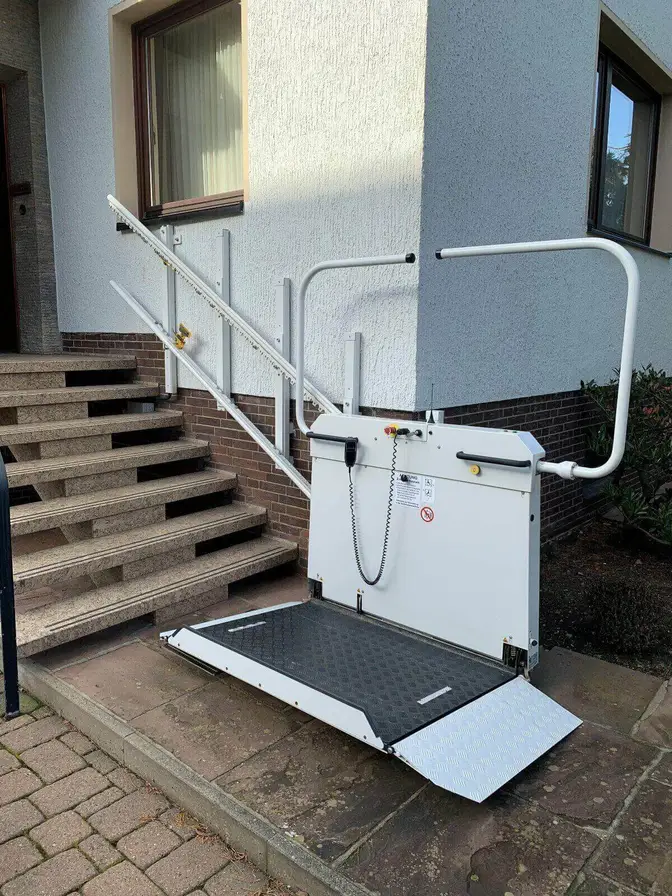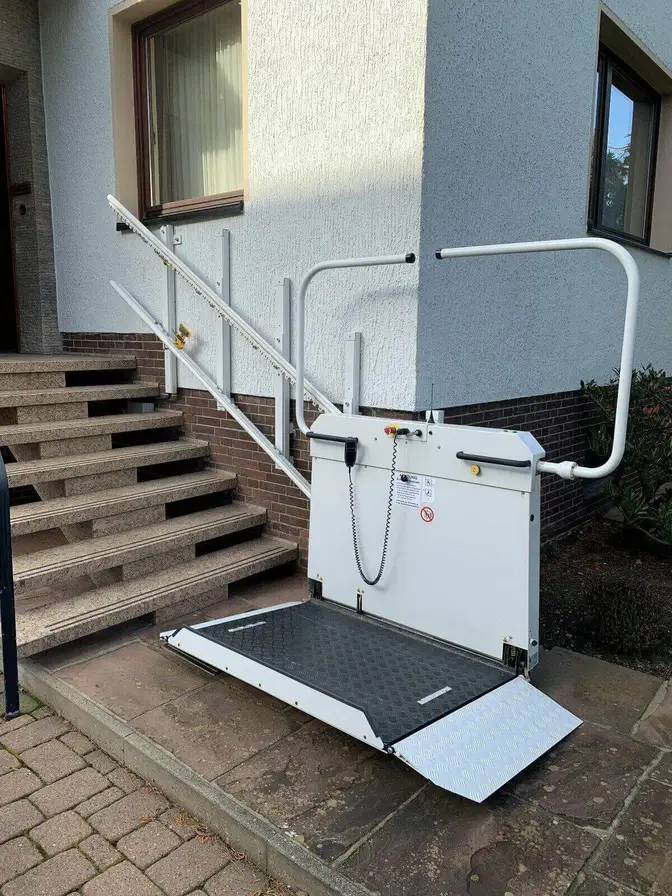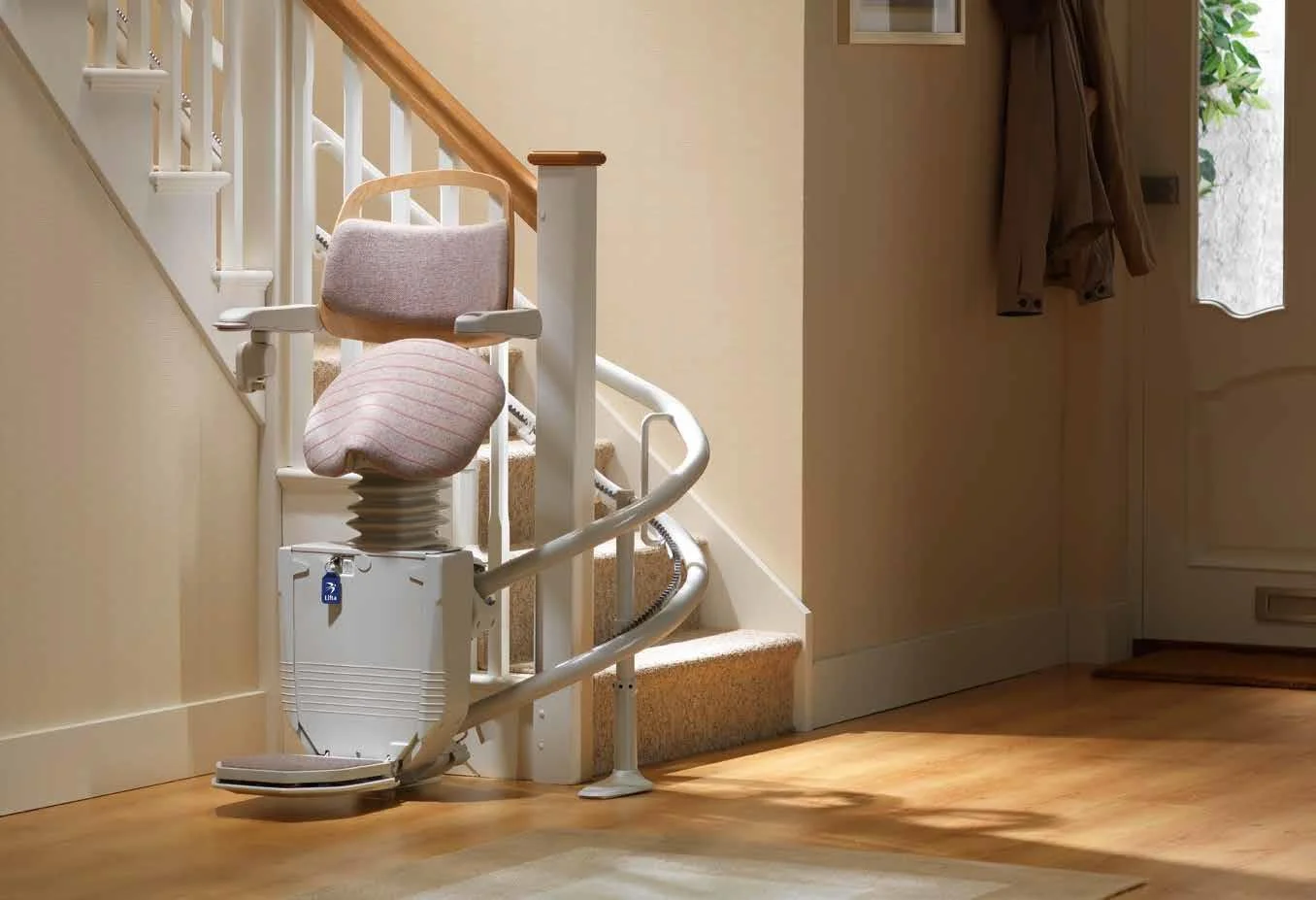
In San Antonio, TX, stairs often connect the spaces people rely on throughout the day. When fit is right, stair access stays smooth, predictable, and unobtrusive.
In San Antonio, we match the system to the rail path and safe parking position and turns, landings, and clearance with a clean, unobtrusive fit.
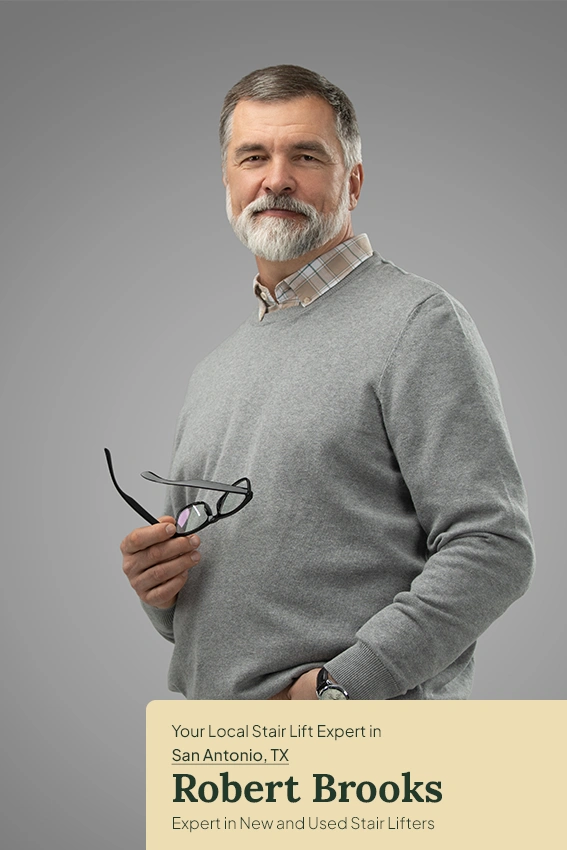

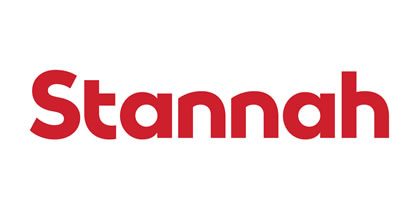

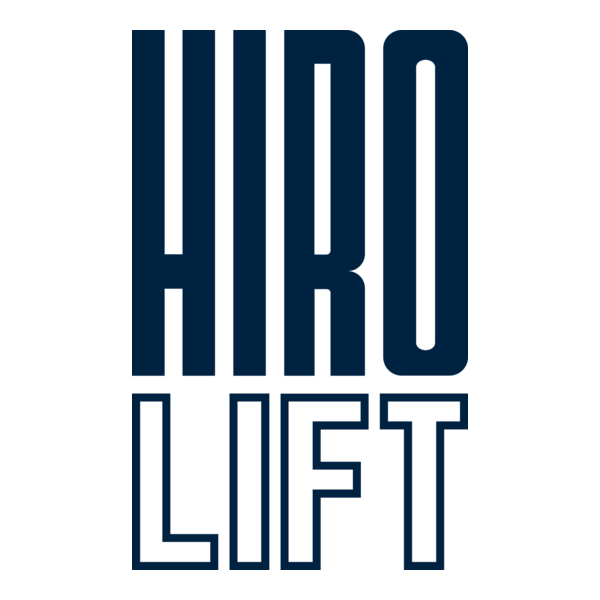




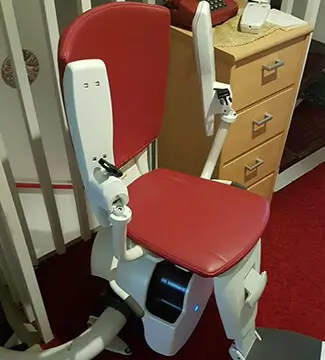
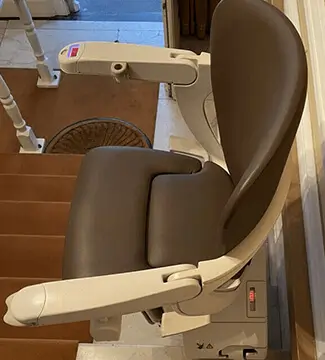
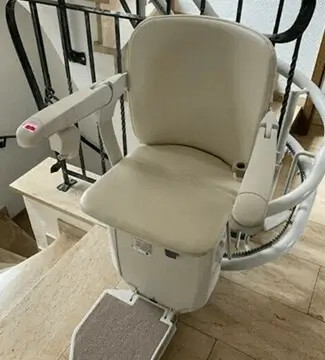
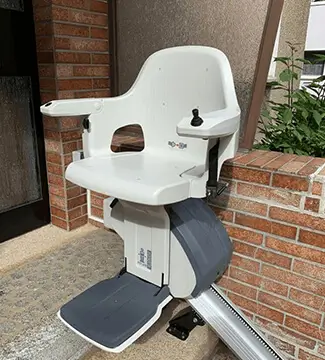
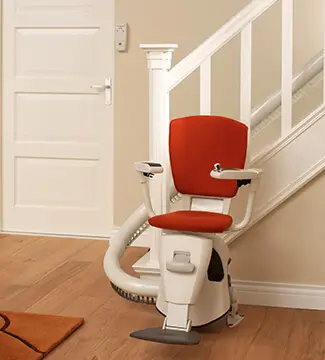
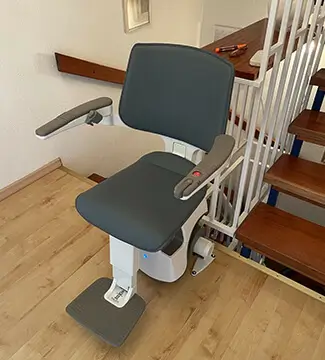
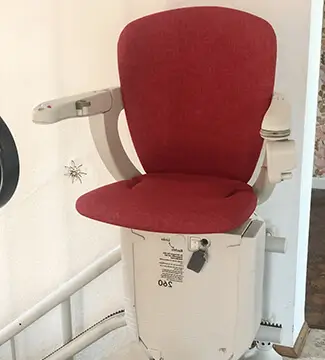
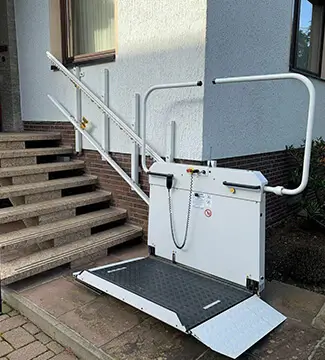

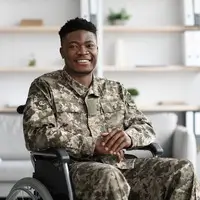

Whether you're looking for a chair lift, vertical platform lift, or wheelchair lift, our indoor systems are available in multiple configurations and can be installed on nearly any staircase—straight or curved.
Depending on your home’s layout, the rails can be mounted to the wall or directly on the steps, ensuring minimal impact on the structure of single-family homes, apartment buildings, or public facilities.
Our outdoor stair lift systems are built from weather-resistant materials and feature protective coatings for long-term durability.
The sealed drive units offer safe and reliable performance in all weather conditions.
Just like their indoor counterparts, the platforms are foldable, saving space when not in use.
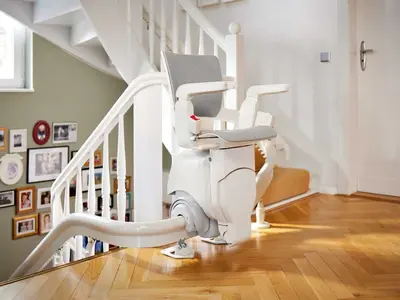
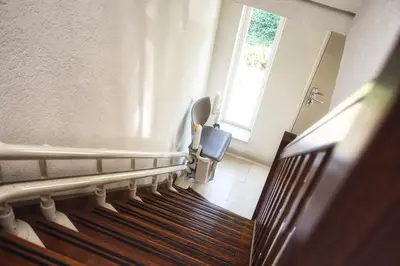
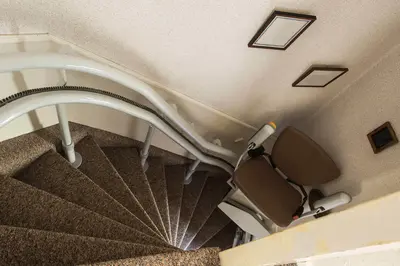
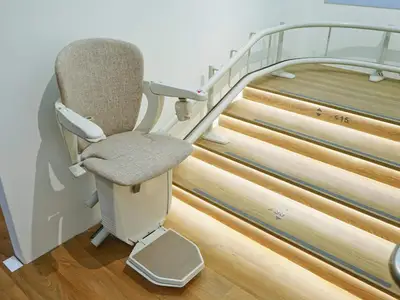



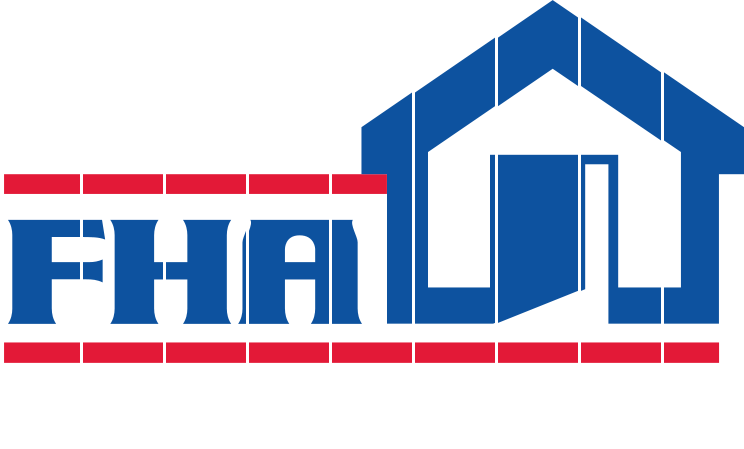

That’s about 255,317 out of 1,458,954 people.
With a veteran rate of 17.5% in San Antonio, TX— roughly 255,317 of 1,458,954 residents—many local homeowners qualify for VA grants toward stairlift installations and accessibility upgrades. Check your eligibility now and secure up to 100% funding.

By choosing a used stair lift, you can save up to 60% compared to buying new.
The actual savings depend on the custom rail system required.
For staircases over 16 feet or with curves, custom-fabricated rails may be necessary, which could involve additional one-time costs.
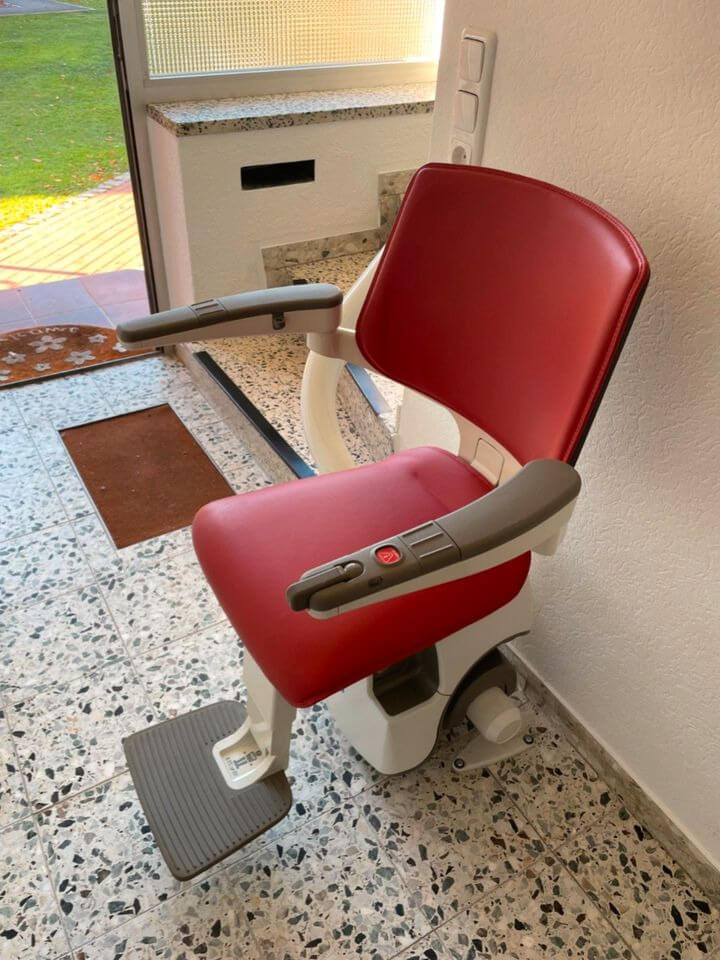
The same cost-saving benefits apply to rentals:
Thanks to simple installations and short rental periods, stair lift leasing is a smart way to stay mobile without long-term commitment.
Tip: Some funding programs or subsidies may also cover stair lift rentals.
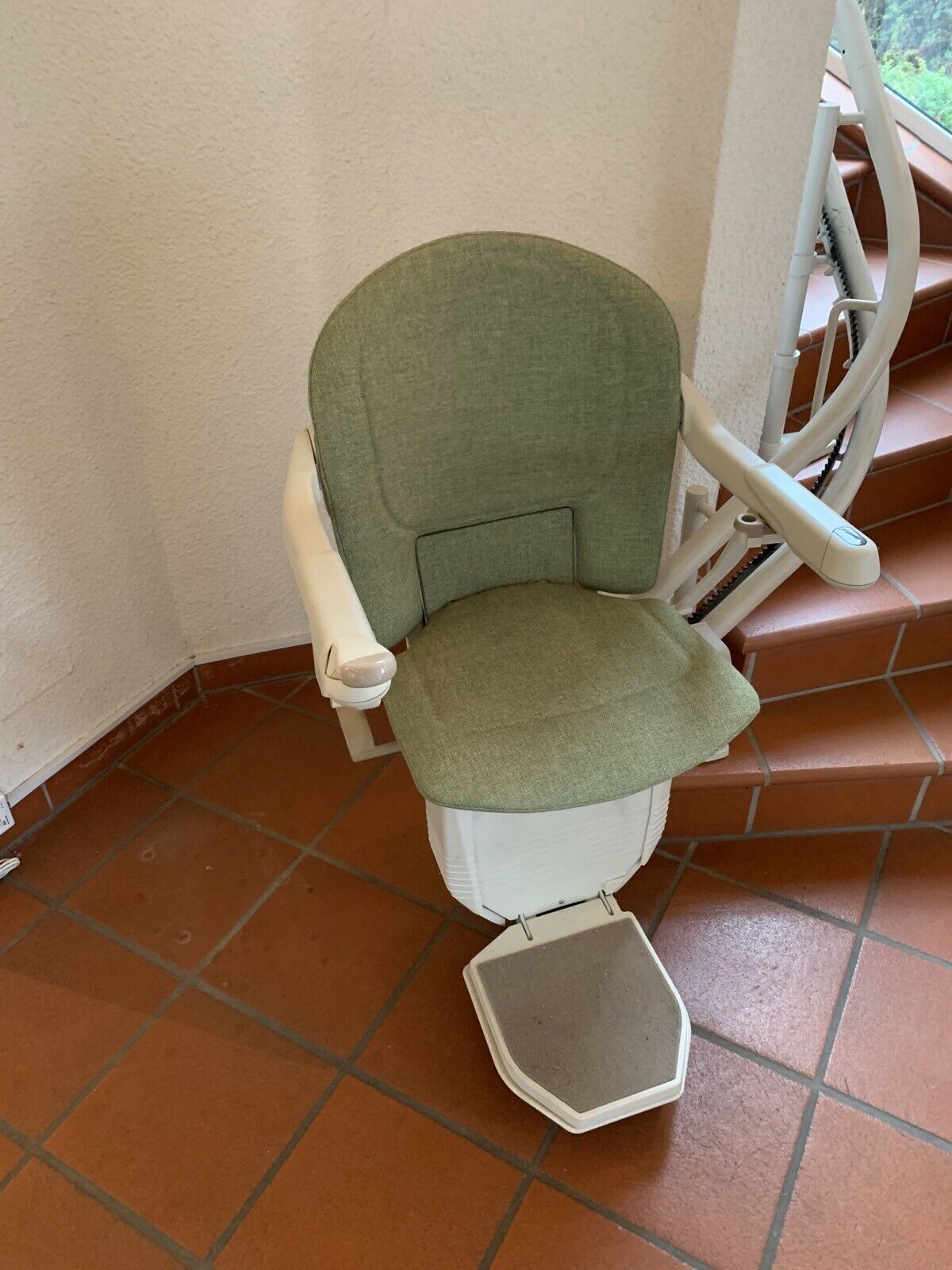
Platform lifts follow the principle of industrial lifting platforms and freight elevators.
These lifts include a non-slip coated platform that can be accessed using a walker or wheelchair.
Many models feature foldable platforms to save space when not in use.
Vertical platform lifts are ideal for small elevation changes between 32" and 80" (80–200 cm).
Thanks to their weather-resistant stainless steel or aluminum design and sealed drive electronics, they are commonly used outdoors.
These lifts require no rails and take up minimal space — making them both cost-effective and efficient.
Also known as wheelchair elevators, they move vertically next to the staircase.
A ceiling lift is installed along an overhead track, making it a highly space-saving solution with no need for floor-mounted structures.
These systems are available both with and without seating, offering options for wheelchair users or patients needing seated transfer.
The chair lift is the classic stair lift solution and often one of the most affordable options.
It’s perfect for individuals who don’t require a wheelchair full-time, but still need assistance moving safely between floors.
Standing lifts are a type of platform lift featuring sturdy handrails and an anti-slip standing platform.
They’re ideal for users with walkers or rollators who may not be comfortable sitting but still need vertical mobility support.
The lean-on lift is a hybrid between a chair lift and a standing lift.
It is especially suitable for users with knee or hip issues, since it allows a supported posture where the legs remain neither fully straight nor bent.
The term "wheelchair lift" is used to describe any type of lift that allows direct access while staying in a wheelchair.
Stairlifter USA offers both platform lifts and vertical lifts (VPLs) designed for wheelchair users.
Key difference: Platform lifts run along a staircase rail, while vertical lifts move straight up next to the stairs — no rails needed.
Choose a stair lift model based on your individual needs.
For example, wheelchair users typically require a drivable platform lift that supports full accessibility.
Not every stair lift fits every staircase.
In narrow stairways, a lift with a folding seat or compact platform may be the smartest solution.
If physical or structural conditions limit your options, the cost of purchasing a stair lift can be quite high.
Check if financial assistance or rental options are available to reduce the expense.
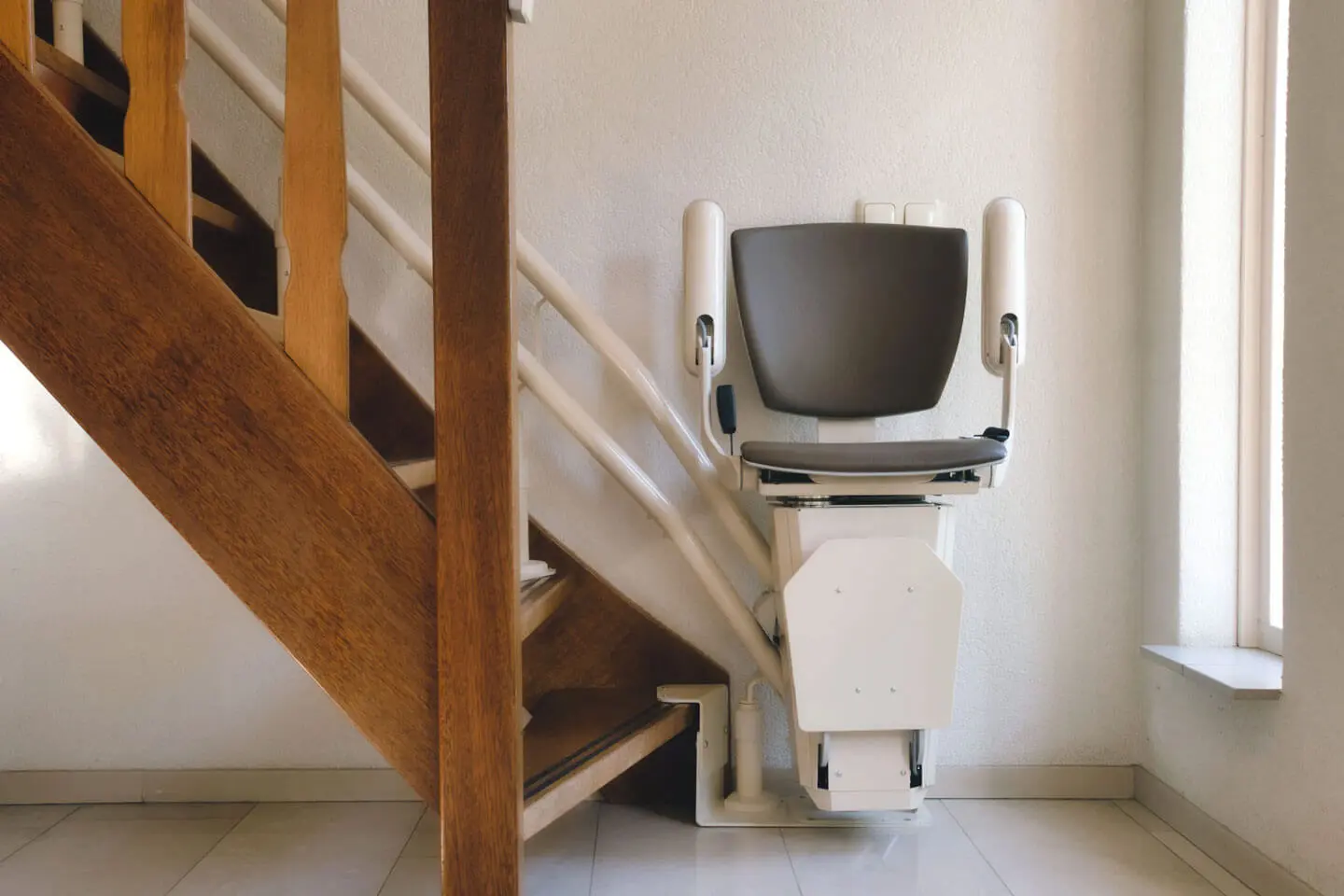
| Type | Configuration | Location | Price (USD) |
|---|---|---|---|
| Chair Lift | Straight | Indoor | $3,000 – $8,000 |
| Chair Lift | Curved | Indoor | $9,000 – $15,000 |
| Chair Lift | Straight | Outdoor | $3,500 – $9,000 |
| Chair Lift | Curved | Outdoor | $14,000 – $18,000 |
| Platform Lift | Straight | Indoor / Outdoor | $10,000 – $15,000 |
| Platform Lift | Curved | Indoor / Outdoor | $12,000 – $20,000 |
| Vertical Platform Lift (VPL) | Up to 72” height | Indoor / Outdoor | $9,000 – $14,000 |
| Vertical Platform Lift (VPL) | Over 72” height | Indoor / Outdoor | From $15,000 |

Lifta specializes in inclined stair lifts for straight and curved stairs. No vertical lifts or standing lifts are included in their product line.

Known for their traction drive systems and custom padding options, Hawle partners with care providers and insurance carriers. They offer soft seat shells and special dimensions tailored to user comfort.
TKE does not offer vertical platform lifts but delivers premium elevators and high-performance stair lifts for all stair types and widths.

Specialist in wheelchair lifts and elevating platforms. Offers fast installation for custom-built drive modules on complex staircases.

Provides durable stair lifts for various elevation levels. Expert consultation available for Medicare/Medicaid assistance and long-term care support.

Offers robust load-bearing lift systems, including custom covers for spiral staircases. Perfect for home lifts and outdoor solutions, especially for wheelchair users.

Focuses on short-term lift rentals, used stair lift sales, and maintenance contracts. Provides independent product comparisons and has high customer satisfaction ratings.
